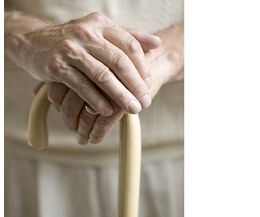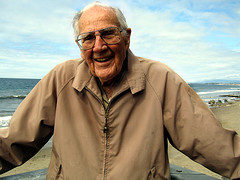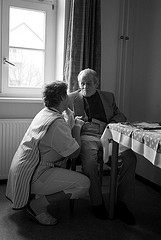Many of us have heard about assisted living facility reforms pending before the California legislature, as well as those aimed specifically at residential care facilities for the elderly (RCFEs). But are those reforms sufficient to ensure that California seniors are safe from elder abuse? According to a recent story from KQED’s State of Health, many elder justice advocates in California do not believe the reforms are going to do enough.
Recent History of Elder Abuse in San Diego
According to Deborah Schoch, an advocate with the California HealthCare Foundation Center for Health Reporting, the number of assisting living facilities in our state essentially doubled over the last 25 years. For whom are these faci lities designed? According to Schoch, they are intended for older, healthy adults who are “relatively independent.” Yet many of these facilities have taken in patients who require much more extensive levels of care, and assisted living facilities “are not designed to deliver skilled nursing care.”
lities designed? According to Schoch, they are intended for older, healthy adults who are “relatively independent.” Yet many of these facilities have taken in patients who require much more extensive levels of care, and assisted living facilities “are not designed to deliver skilled nursing care.”
 Southern California Nursing Home Abuse Lawyer Blog
Southern California Nursing Home Abuse Lawyer Blog



 First, it’s important to have a clear idea about why hospices are bringing in relatively healthy older adults, and how these companies are profiting from non-terminal patients. How did this start to happen? In short, many hospice care centers have begun recruiting patients with aggressive marketing tactics, and many of those patients aren’t terminal. It’s in the financial interest of a hospice chain to “find patients well before death,” the Washington Post reported. And the reason is simple: “Medicare pays a hospice about $150 a day per patient for routine care, regardless of whether the company sends a nurse or any other worker out that day. That means healthier patients, who generally need less help and live longer, yield more profits.”
First, it’s important to have a clear idea about why hospices are bringing in relatively healthy older adults, and how these companies are profiting from non-terminal patients. How did this start to happen? In short, many hospice care centers have begun recruiting patients with aggressive marketing tactics, and many of those patients aren’t terminal. It’s in the financial interest of a hospice chain to “find patients well before death,” the Washington Post reported. And the reason is simple: “Medicare pays a hospice about $150 a day per patient for routine care, regardless of whether the company sends a nurse or any other worker out that day. That means healthier patients, who generally need less help and live longer, yield more profits.”
 Since they are considered “non-medical,” these assisted living facilities may not admit people with certain “prohibited conditions.” Some of those conditions include
Since they are considered “non-medical,” these assisted living facilities may not admit people with certain “prohibited conditions.” Some of those conditions include  Are some of these options better than others? Depending on your unique situation, there are many factors to consider when deciding what kind of care is best for someone who suffers from dementia. If you have questions or concerns about the level of care your elderly loved one has received or is currently receiving, it’s a good idea to contact an experienced
Are some of these options better than others? Depending on your unique situation, there are many factors to consider when deciding what kind of care is best for someone who suffers from dementia. If you have questions or concerns about the level of care your elderly loved one has received or is currently receiving, it’s a good idea to contact an experienced  While many assisted living facilities in California may be providing appropriate care and abiding by the law, many of these homes continue to expose their residents to serious cases of abuse and neglect. If you have an elderly loved one who resides in a nursing facility, it’s important to make sure that your loved one receives the best care possible. If you’re concerned about nursing home abuse or neglect, don’t hesitate to contact an
While many assisted living facilities in California may be providing appropriate care and abiding by the law, many of these homes continue to expose their residents to serious cases of abuse and neglect. If you have an elderly loved one who resides in a nursing facility, it’s important to make sure that your loved one receives the best care possible. If you’re concerned about nursing home abuse or neglect, don’t hesitate to contact an 
 Limited Dental Care Training and Attention
Limited Dental Care Training and Attention





